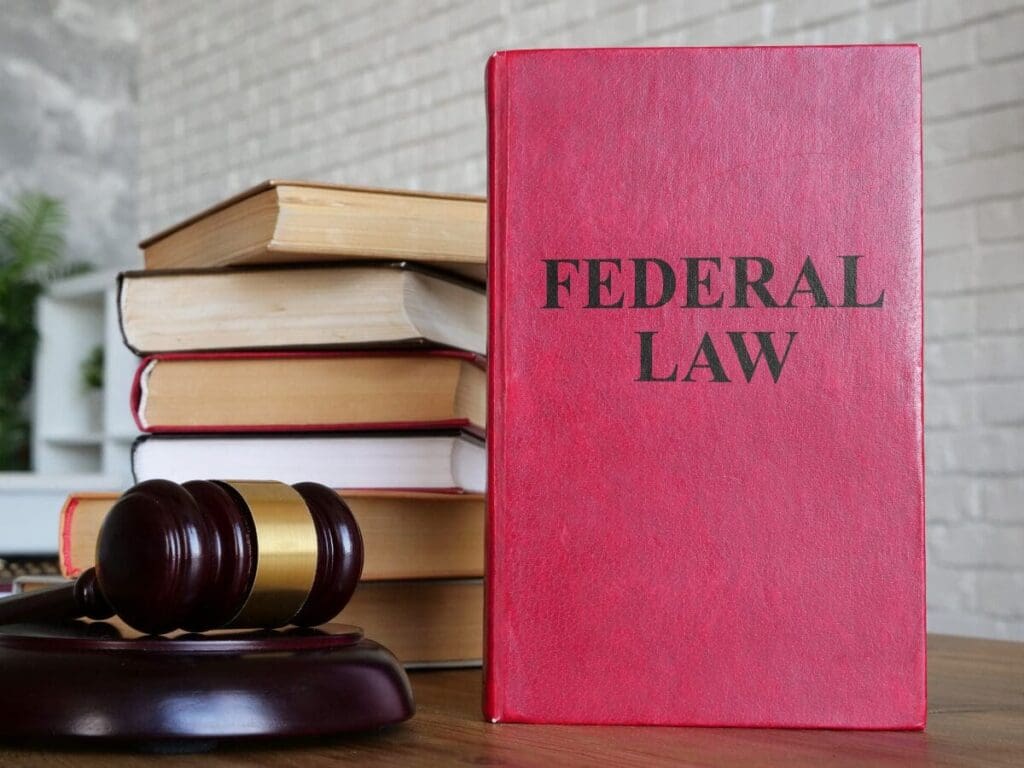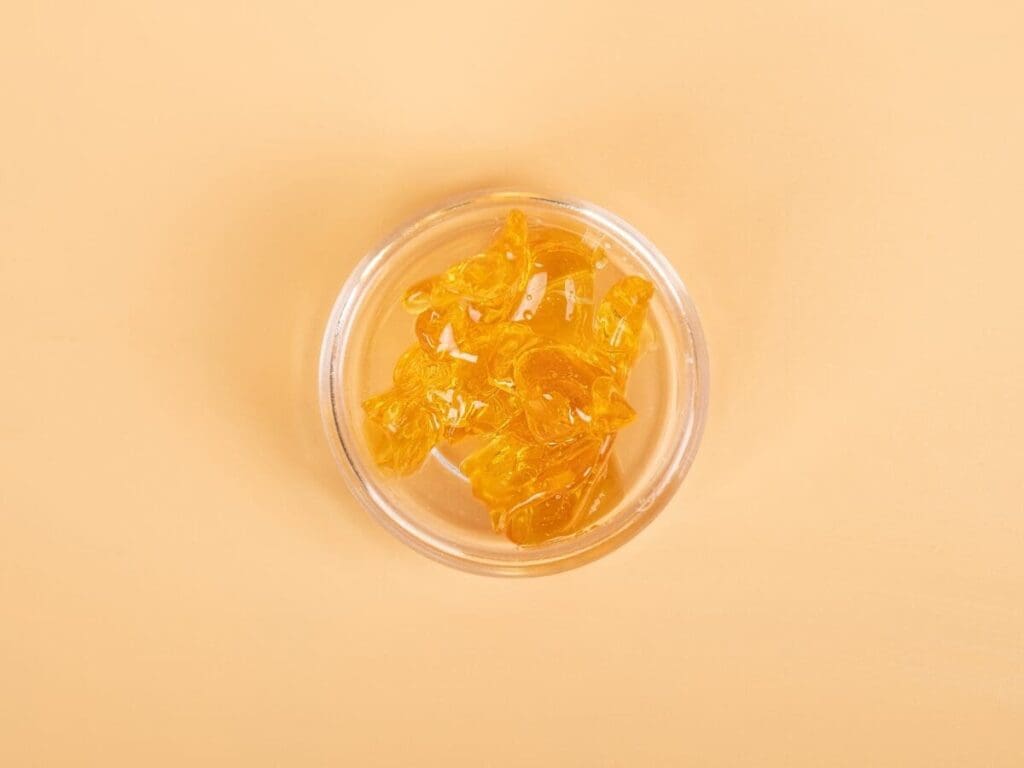Key Takeaways:
- Delta 8 Legal Status: Delta 8 THC is illegal in Mississippi under current state law, regardless of its federal classification.
- Potential Legal Risks: Possessing, buying, or selling Delta 8 products in Mississippi can result in criminal charges and fines.
- Future Legislation: Although Delta 8 remains illegal, the legal landscape is evolving, with potential changes possible in the future.
Is Delta 8 legal in Mississippi? For many residents, this question raises concerns about navigating complex state and federal laws. Despite its growing popularity across the country, Mississippi has maintained a strict stance on Delta 8 products.
At Happy Hemp, we take pride in offering high-quality, lab-tested Delta 8 gummies for relaxation and stress relief. Our commitment to safe, potent products has made us a leader in the industry, trusted by customers nationwide.
In this article, we’ll explore the legality of Delta 8 in Mississippi and what residents need to know.
What Is Delta 8 THC?
Delta 8 THC (tetrahydrocannabinol) is a naturally occurring cannabinoid found in cannabis plants, including both hemp and marijuana. It’s chemically similar to Delta 9 THC, the compound most commonly associated with the psychoactive effects of cannabis, but with some key differences. Delta 8 is known to produce milder effects than Delta 9, offering users a less intense experience while still providing a “high” sensation.
Delta 8 has gained popularity due to its perceived legal status, especially in states where Delta 9 THC remains illegal. Its effects can include feelings of relaxation, euphoria, and increased appetite, though it’s often considered less potent and less likely to cause anxiety or paranoia than Delta 9.
Looking for a natural way to relax and unwind? Try our premium Delta 8 gummies at Happy Hemp! Each gummy is crafted with high-quality, lab-tested ingredients for a safe and enjoyable experience. Discover the perfect balance of taste and potency. Shop now and elevate your wellness journey with our best-selling Delta 8 gummies!
Federal Delta 8 Laws
The legality of Delta 8 THC at the federal level is complex and often misunderstood. While the 2018 Farm Bill opened the door for the legalization of hemp and hemp-derived products, including Delta 8 THC, the situation remains nuanced due to Delta 8’s psychoactive properties and the processes involved in its production. This overview breaks down key aspects of the federal legal landscape surrounding Delta 8 THC, focusing on the critical issues that contribute to its ambiguous status.
The 2018 Farm Bill And Hemp Legalization
The passage of the 2018 Farm Bill was a turning point for hemp-derived products in the United States. The bill legalized hemp, which is defined as cannabis containing less than 0.3% Delta 9 THC by dry weight. This legislation allowed for the production and sale of various hemp-based products, including CBD and Delta 8 THC, as long as they adhered to the Delta 9 THC limit. Because Delta 8 can be derived from hemp, many assumed that it was also legal under the Farm Bill. However, the bill did not explicitly address Delta 8 THC, leading to confusion and varying interpretations of its legal status.
Psychoactive Properties Of Delta 8 THC
One of the main points of concern surrounding Delta 8 THC is its psychoactive nature. Unlike CBD, Delta 8 produces mind-altering effects, albeit typically milder than Delta 9 THC. This has raised red flags for some federal agencies, as the psychoactive properties place Delta 8 in a different category from other hemp-derived cannabinoids. The fact that Delta 8 causes a high similar to Delta 9 THC has led to increased scrutiny and concerns about its potential misuse, contributing to the ongoing debate over its legality.
DEA’s 2020 Interim Rule And Controlled Substances
In August 2020, the Drug Enforcement Administration (DEA) released an interim rule that sparked further controversy over Delta 8 THC. The rule classified “synthetically derived” tetrahydrocannabinols as controlled substances, effectively placing them on the same legal footing as Delta 9 THC. This created uncertainty for Delta 8, as it can be extracted from hemp but often requires chemical processes to convert CBD into Delta 8. The DEA’s rule does not clearly define whether Delta 8 falls under the category of “synthetically derived,” leaving its legal status in a gray area.
The Ambiguous Legal Status Of Delta 8 THC
While Delta 8 THC is not explicitly banned at the federal level, its legal status remains unclear due to conflicting interpretations of the law. On one hand, it is a hemp-derived product, which should make it legal under the 2018 Farm Bill. On the other hand, the DEA’s interim rule and the chemical processes involved in producing Delta 8 complicate matters. The federal government has yet to provide a definitive ruling, leaving the legality of Delta 8 THC in a state of uncertainty and dependent on further clarification from lawmakers and regulators.

Mississippi State Laws On Delta 8 THC
The legal status of Delta 8 THC in Mississippi is particularly stringent. Unlike some states that have embraced a more lenient approach to cannabis products, Mississippi has classified Delta 8 THC in the same category as Delta 9 THC, making it illegal. The state’s adherence to strict drug control policies places Delta 8 under heavy regulation, with no exceptions for its use or distribution. This overview will provide insight into the key aspects of Mississippi’s Delta 8 THC laws and their implications for residents.
Delta 8 THC Classified As A Controlled Substance
In Mississippi, Delta 8 THC is classified as a controlled substance, similar to Delta 9 THC. The state treats all forms of tetrahydrocannabinol as illegal under its strict cannabis laws. Mississippi’s classification aligns with the federal Controlled Substances Act, which places tetrahydrocannabinols, including Delta 8, under Schedule I, the most restricted category. As a result, Delta 8 is regarded as having a high potential for abuse and no accepted medical use under Mississippi law, making it subject to stringent control measures.
No Legal Distinction Between Delta 8 And Delta 9 THC
Mississippi law does not differentiate between Delta 8 THC and Delta 9 THC in terms of legality. Both are treated as controlled substances, regardless of their chemical differences or whether Delta 8 is derived from hemp or marijuana. This lack of distinction means that Delta 8, despite its derivation from legal hemp plants, remains illegal in Mississippi. The state’s strict cannabis laws apply uniformly to all tetrahydrocannabinols, further reinforcing the prohibition of Delta 8 THC.
Prohibition On Possession, Sale, And Distribution
Mississippi has made it clear that Delta 8 THC cannot be possessed, sold, or distributed within the state. The state’s law enforcement agencies actively enforce this prohibition, treating any involvement with Delta 8 as a criminal offense. There are no exemptions or legal pathways for individuals or businesses to legally engage with Delta 8 products, whether they are derived from hemp or marijuana. This absolute ban makes Mississippi one of the strictest states in terms of its approach to cannabis-related substances, leaving no room for the legal presence of Delta 8 THC.
Absence Of Legislative Exemptions For Delta 8 THC
Unlike some other states that have created exemptions or specific regulations for Delta 8 THC products, Mississippi has not passed any legislation that would allow for the legal use of Delta 8. The state’s lawmakers have maintained a hardline stance against cannabis products, and no efforts have been made to carve out legal spaces for Delta 8. This reinforces the overall prohibition and leaves Delta 8 in the same legal category as other banned cannabinoids in Mississippi.
Penalties For Possessing Delta 8 THC In Mississippi
Mississippi’s strict cannabis laws extend to Delta 8 THC, treating it similarly to Delta 9 THC and categorizing it as a controlled substance. Possessing Delta 8 in the state can lead to serious legal consequences, which vary based on the amount of the substance in possession. To avoid running afoul of Mississippi’s tough drug laws, it’s important to understand the penalties for possessing Delta 8 THC. Below is a breakdown of the potential consequences for possession.
- Possession of 30 grams or less: For first-time offenders, possession of 30 grams or less of Delta 8 THC can result in a misdemeanor charge. The penalty typically involves a fine of up to $250. However, subsequent offenses could lead to more severe punishments, including potential jail time.
- Possession of more than 30 grams: If a person is found in possession of more than 30 grams of Delta 8 THC, the charge escalates to a felony. Penalties for this can include a prison sentence of up to 3 years, along with fines that can reach up to $3,000, depending on the amount possessed.
- Possession with intent to distribute: Possessing large quantities of Delta 8 THC, or being caught with paraphernalia that suggests intent to distribute, can result in even more severe felony charges. The penalties include substantial prison sentences, potentially ranging from 5 to 20 years, and fines that can go up to $30,000 or more.
- Penalties for minors: If a minor is found in possession of Delta 8 THC, the penalties may involve juvenile detention, fines, and mandatory drug education or rehabilitation programs. The consequences often depend on the amount in possession and whether it is a repeat offense.
Aggravating factors: Penalties can be heightened if the possession occurs near a school, park, or other protected areas. Aggravating factors, such as prior drug convictions or the presence of a firearm, can also lead to increased fines and longer prison sentences.
Where To Buy Delta 8 In Mississippi
Due to Delta 8 THC being illegal in Mississippi, it is not legally available for purchase within the state. This means that licensed retailers, vape shops, and CBD stores in Mississippi are prohibited from selling Delta 8 products. Furthermore, online retailers are also restricted from shipping Delta 8 products to Mississippi residents.
Individuals caught attempting to buy or sell Delta 8 THC products within the state can face legal consequences, including fines or criminal charges, depending on the amount in possession. Therefore, it is important for residents of Mississippi to be aware of the state’s strict stance on Delta 8 and avoid purchasing or using these products until any legal changes occur.

Final Thoughts
Delta 8 THC is currently illegal in Mississippi, with the state maintaining a strict stance on cannabis-related substances. While federal ambiguity around Delta 8 THC continues, Mississippi has opted to follow a more prohibitive approach, treating Delta 8 similarly to Delta 9 THC.
As the legal landscape for cannabis evolves across the country, it’s possible that Mississippi could reconsider its laws in the future. However, for now, Delta 8 remains classified as a controlled substance in the state, and residents should be cautious to avoid legal repercussions by purchasing or using these products.
The future of Delta 8 in Mississippi remains uncertain, but those interested should continue to monitor legal developments both at the state and federal levels for any potential changes.
Read also:
- Managing OCD with CBD: A New Hope for Symptom Relief
- CBD for Epilepsy: Understanding Its Impact on Seizure Control
- How CBD Can Contribute to Hair Health
Frequently Asked Questions About Delta 8 Legality In Mississippi
What is Delta 8 THC, and how does it differ from Delta 9?
Delta 8 THC is a milder form of THC, offering similar psychoactive effects as Delta 9 but with reduced potency, making it more appealing to users seeking a less intense experience.
Is Delta 8 derived from hemp legal in Mississippi?
No, even though Delta 8 can be derived from hemp, Mississippi classifies it as illegal, following the state’s controlled substances laws.
Can I buy Delta 8 products online if I live in Mississippi?
No, it is illegal for retailers to ship Delta 8 products to Mississippi. Purchasing from out-of-state vendors is also against state law.
Are there any penalties for possessing Delta 8 in Mississippi?
Yes, possession of Delta 8 in Mississippi can result in fines, criminal charges, and penalties similar to those for Delta 9 THC.
Has Mississippi ever considered changing its stance on Delta 8 THC?
As of now, there are no major legislative efforts to change Mississippi’s strict laws on Delta 8, but shifts in federal law could influence future changes.
Why do some states allow Delta 8 while others don’t?
States differ in their interpretation of the 2018 Farm Bill, leading to varying laws. Some allow Delta 8 because it’s hemp-derived, while others treat it like Delta 9 THC.
Can Delta 8 be detected in drug tests in Mississippi?
Yes, Delta 8 THC can show up in drug tests because it is chemically similar to Delta 9. It is recommended to avoid Delta 8 if drug testing is a concern.
What makes Delta 8 appealing to consumers despite legal issues?
Delta 8’s appeal comes from its milder psychoactive effects, making it a preferred choice for people seeking relaxation without the intensity of Delta 9 THC.
Are there any medical benefits associated with Delta 8?
Some users report benefits like reduced anxiety, pain relief, and improved sleep, though more research is needed to confirm these effects.
Is Delta 8 likely to become legal in Mississippi in the near future?
The future is uncertain. While many states are revisiting cannabis-related laws, Mississippi has not signaled any immediate changes regarding Delta 8 legality.
Sources:
- HB1572 (As Introduced) – 2024 Regular Session. (2024). State.ms.us. https://billstatus.ls.state.ms.us/documents/2024/html/HB/1500-1599/HB1572IN.htm
- Project, M. P. (n.d.). Mississippi. MPP. https://www.mpp.org/states/mississippi/
- SB2922 (As Introduced) – 2024 Regular Session. (2024). State.ms.us. https://billstatus.ls.state.ms.us/documents/2024/html/SB/2900-2999/SB2922IN.htm
- (2020). Ms.gov. https://www.sos.ms.gov/elections/initiatives/InitiativeInfo.aspx?IId=48
- Mississippi Medical Marijuana Law. (2024, May 23). NORML. https://norml.org/laws/medical-laws/mississippi-medical-marijuana-law-2/







